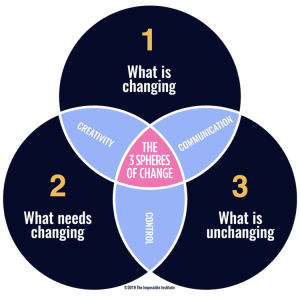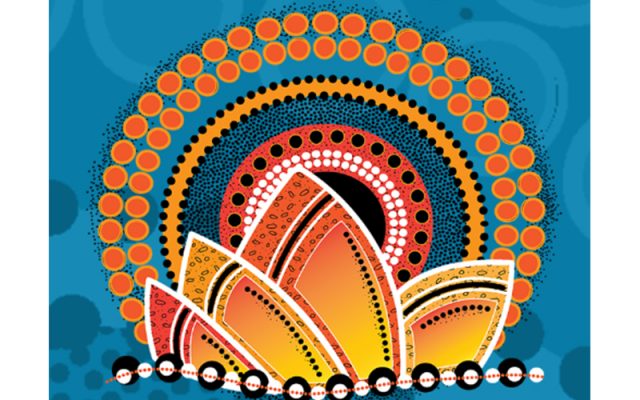
Business as unusual
Over the Easter break, I spent a lot of my time stacking and unstacking the dishwasher and doing seemingly endless loads of washing. I am enormously grateful to have access to both these appliances, especially given my daughters’ current obsession with changing their clothes every time they walk past their room.
Of course, the kids are not the only ones changing rapidly.

I’m sure you’ve noticed a fair bit else changing in your world. My colleagues and I have been talking about change too: but not in the way you might expect. The way we see it, even though the context for evaluation is rapidly changing, there are elements of stability too. Founders of The Impossible Institute, Kieran Flanagan and Dan Gregory talk about the three spheres of change in their (somewhat spookily) prescient book Forever Skills.
- What’s changing
- What needs changing
- What’s unchanging.
This offers a grounding frame for evaluation.
Sure, the way we interact with our clients and our colleagues is different. The way our clients design and deliver programs is also different: what was yesterday a residential mental health stepped care program or a face to face court appearance may today be a telehealth consult, or an appearance by video link. Flanagan and Gregory’s model supports the notion that some of those service delivery changes are not just minor interruptions to service delivery. In fact, they’re innovations that could be incorporated as ongoing best practice service delivery.
Who we are and what we do as evaluators is unchanging.
The third—and, arguably, most important—sphere of change is what’s unchanging. Evaluators are curious and creative. We’re committed to using our critical thinking to make sense of the changes we see around us. We collaborate with each other to make sure our clients have the best possible information for decision making, for refining what they do to serve the greater good. None of that has changed.
Over the next few weeks, we’ll be sharing ideas and approaches for making pragmatic, thoughtful decisions. We’ll cover a range of topics such as:
- reshaping questions and approaches to respond to rapid change
- managing evaluations through change
- creating and maintaining connection
- understanding context
- capturing changes in program logic.
It’s clear to me that, like two toddlers playing dress up, everything changes, eventually. Our opportunity as evaluators is to lean into change, taking strength from what’s not changing. Evaluation is incredibly valuable and the way we use it right now also offers incredible value.




